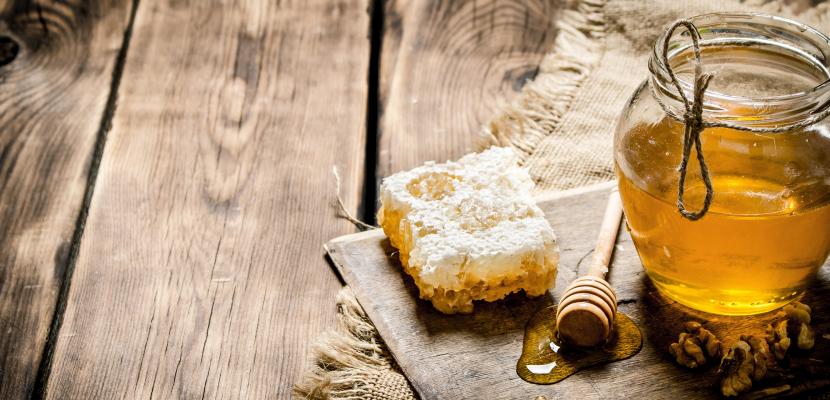
The current row about the certification of Manuka honey, and whether it is a distinctly New Zealand product, is just the latest dispute involving Geographical Indications (GIs), according to Bond University Professor of Law, William van Caenegem.
These are markers that products have special qualities due to their origins in a specific region, like Champagne.
There is a debate as to whether a registered GI system for food should be adopted in Australia. It might be good for our farmers – to more effectively protect King Island Beef, Bangalow pork or Tasmanian lobster against low quality imitations. But would it be in the best interest of Australian producers and consumers to simply capitulate to demands about New Zealand Manuka, or about GIs in general?
Why GIs?
Registering a GI can stop imitators riding on the coattails of local producers who have worked hard to build the reputation of their typical local product, be it cheese, processed meat or quality fruit.
To date, Australia has not copied the European GI system, other than for wine. In Europe, “Roquefort”, “Kalamata” and “Feta” and many other terms can never be used for products from other regions, or that do not follow detailed specifications.
Australia has no laws, for instance, that specify Mareeba Mangoes must come from a region identified by regulation as “Mareeba”, that Tasmanian whisky must be distilled from Tasmanian ingredients, or that Batlow apples are a particular variety, picked at certain times, and from a place whose borders have been clearly delineated by law as being “Batlow”.
The lack of these prescriptive laws also means producers are free to use certain terms protected as GIs overseas, arguing that they are considered generic here. Australian cheese makers, for instance, are free to use the word “Feta”. In Europe, it can only be used by producers from a particular region in Greece, for cheese made in a prescribed manner.
But geographic indicators can also be valuable for consumers.
Where a GI is declared then strict product specifications, about milk quality and processing methods for a cheese GI for instance, also ensure consumers get what they bargain for and are protected. Pro-GI lobbyists argue that because of its simple regulatory model, the GI system is an effective way to protect consumers against deceptive origin branding practices.
Wine is protected
Australia has adopted GIs for wine. The most well-known foreign example is Champagne – a region in France that produces the famous sparkling wine. Because the term is officially registered as a GI, nobody is allowed to use the name Champagne unless the wine is produced from grapes grown in the Champagne region and it is made according to a prescribed production method.
We introduced a system to register wine GIs in the 1990s after entering into a treaty, recently renewed, which gave us better access to European wine markets.
Prior to this we were free to use terms like Champagne in a purely descriptive sense: signifying sparkling wines generally (including Australian ones) rather than one actually originating in France. Now, both European and Australian wine regional names are registered and reserved for producers from the region itself – e.g. Champagne, Burgundy, Chablis, and Barossa, Hunter Valley and Coonawarra.
A debate we have to have
GIs have been a source of tension between Europe and Australia for some time, and will likely come up again in the current free trade negotiations.
The Europeans would like to recover a monopoly over geographical terms, even where they have become purely descriptive in some other countries. Among other things, this would mean no more Australian-made feta, parmesan and gorgonzola cheeses, or local Valencia oranges – the style or variety can be copied, but not the name.
This is something Europeans partially achieved in their recently concluded free trade agreement with Canada.
Which takes us back to Manuka honey – New Zealand is arguing that the name has become so closely associated with NZ origins, that any other country should call their honey something else, even if it is an identical product.
Admittedly the reputation that Manuka honey has built up among consumers results from the promotional efforts of NZ producers and associations. But here’s the rub: Manuka honey is named for a certain tree or bush. One which is prevalent in Australia as well, but called a tea tree.
So if a producer in Australia makes honey from bees that have foraged on local tea trees, then why should it not be called “Manuka Honey”? After all, it originates from exactly the same tree and has identical characteristics to Manuka honey from NZ. Might the Australian honey not actually be better than NZ honey, with more health benefits? And if not Manuka Honey, what should the Australian equivalent be called?
A GI registration system is one way of preventing these types of difficult issues arising - who gets to use a geographical term and on what basis can be sorted out beforehand. Given Australia’s reputation for clean and green food, the system could potentially work well for us. We could send clear signals to consumers around the world and so tell the “back story” of our regional foods.
GI registration won’t work for all farming communities or products. It could also cause a lot of upheaval for those currently producing local versions of foreign specialities, or where ordinary trade marks already occupy the space. But for some farmers it could trigger effective collaboration to secure the future value of a champion local food.
This article originally appeared on The Conversation.